As the pandemic continues to threaten our community, we turn to a few of our local allies in the fight for a candid conversation about where we are now and the information you need to know about vaccinations.
All over the world, health care professionals are still actively battling the COVID-19 crisis, dealing with the realities of deadly new variants that are threatening the unvaccinated and vaccinated alike and finding themselves not only physically and emotionally fatigued but also caught in the politicization of the pandemic. We spoke with several health care practitioners who reflect on their challenges, their concerns for our community and how they’ve developed a stronger bond with their colleagues as they’ve navigated a major health crisis on the local level.
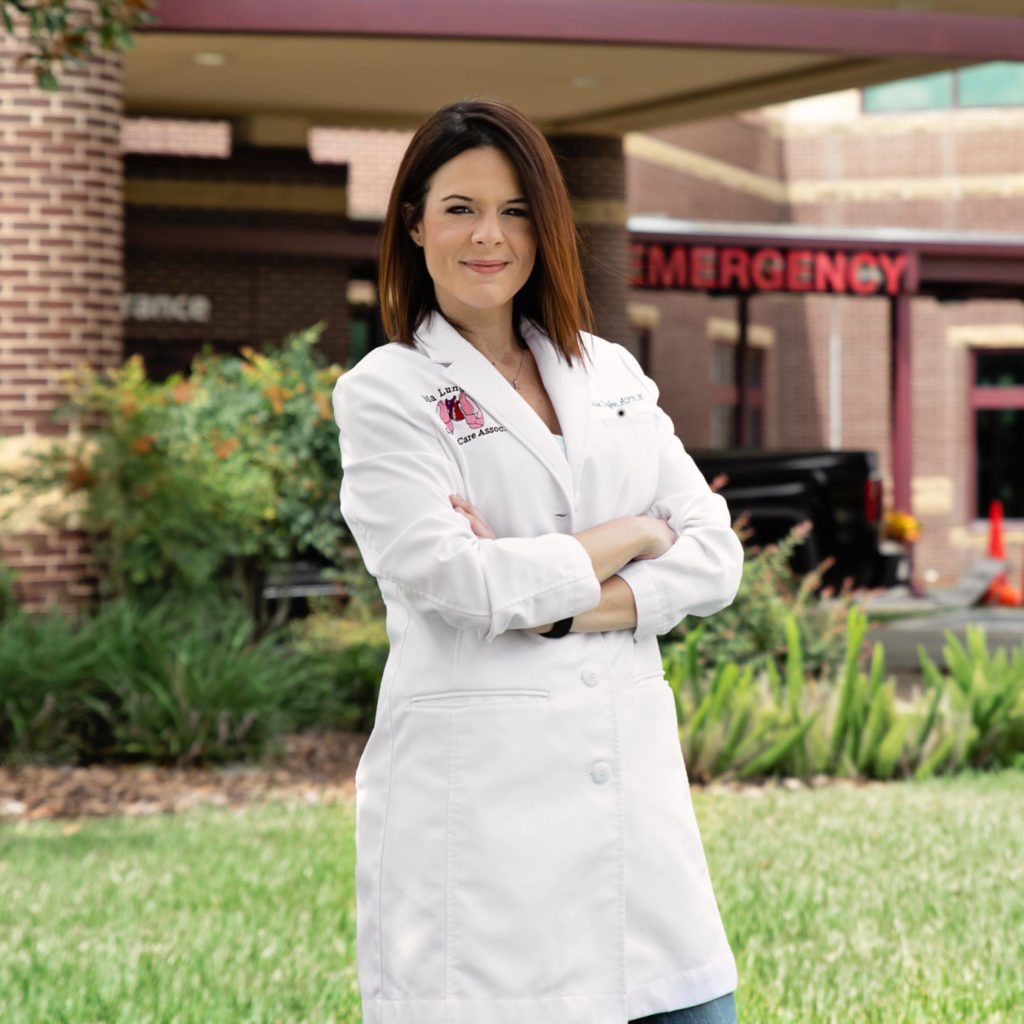
Working as a Team
Jessie Taylor has lived in Ocala for nearly 30 years.
“I love that Ocala is so quiet. I like visiting the big cities, but I prefer a more quiet, low-key lifestyle,” she offers.
She grew up around horse farms and farm communities. Now, she works the night shift at West Marion Community Hospital as an advanced practice registered nurse (APRN) for the Ocala Intensivist Group, splitting her seven straight days at work between the intensive care unit (ICU) and emergency room (ER).
Taylor explains that, during the day, the ICU buzzes with activity and has several medical providers on the floor who may be available to answer a question. At night, it’s a much quieter place, with only a small team from different departments available to provide critical care.
But just because it’s quiet doesn’t mean it is calm.
“It can be very stressful, very stressful,” she shares, adding that it is especially so when having to talk to patients about using assisted breathing devices because the effects of COVID-19 have become too much for their bodies to handle.
“That’s a very difficult conversation that, unfortunately, I’ve had to have in the last couple months—numerous times, multiple times a day,” Taylor reveals.
As a result, she relies on her co-workers for support now more than she ever has before. She says they’re like a community within the community.
“We’re all really interconnected,” she continues. “It’s like a hometown—that’s what I like most about it.”
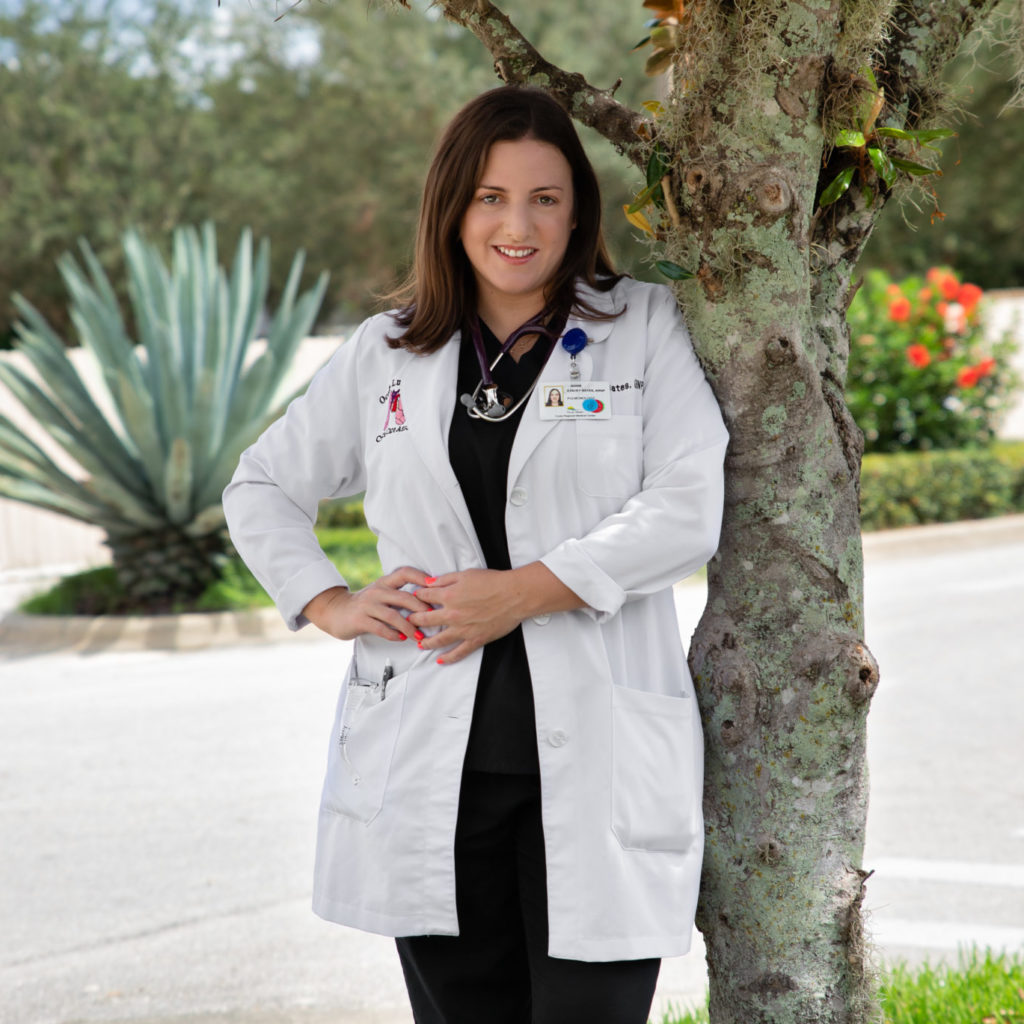
Like Taylor, Stacey Bates also works in the ICU at West Marion as an APRN. She’s employed by Ocala Lung & Critical Care. And, also like Taylor, she enjoys the fact that Ocala is a small community.
“Everybody seems to know everybody in Ocala,” Bates observes. “I think it’s a very tight-knit community. If something’s happening, the people here really band together and help each other out.”
She said this act of unity is evident during her shifts in the ICU, as daily hospitalizations from COVID-19 infections stretch providers and their facilities to the limits.
“We’ve had providers working on their time off,” she asserts. “Even if they can only give four or six hours…we’re each doing that, helping out so we can stay afloat.”
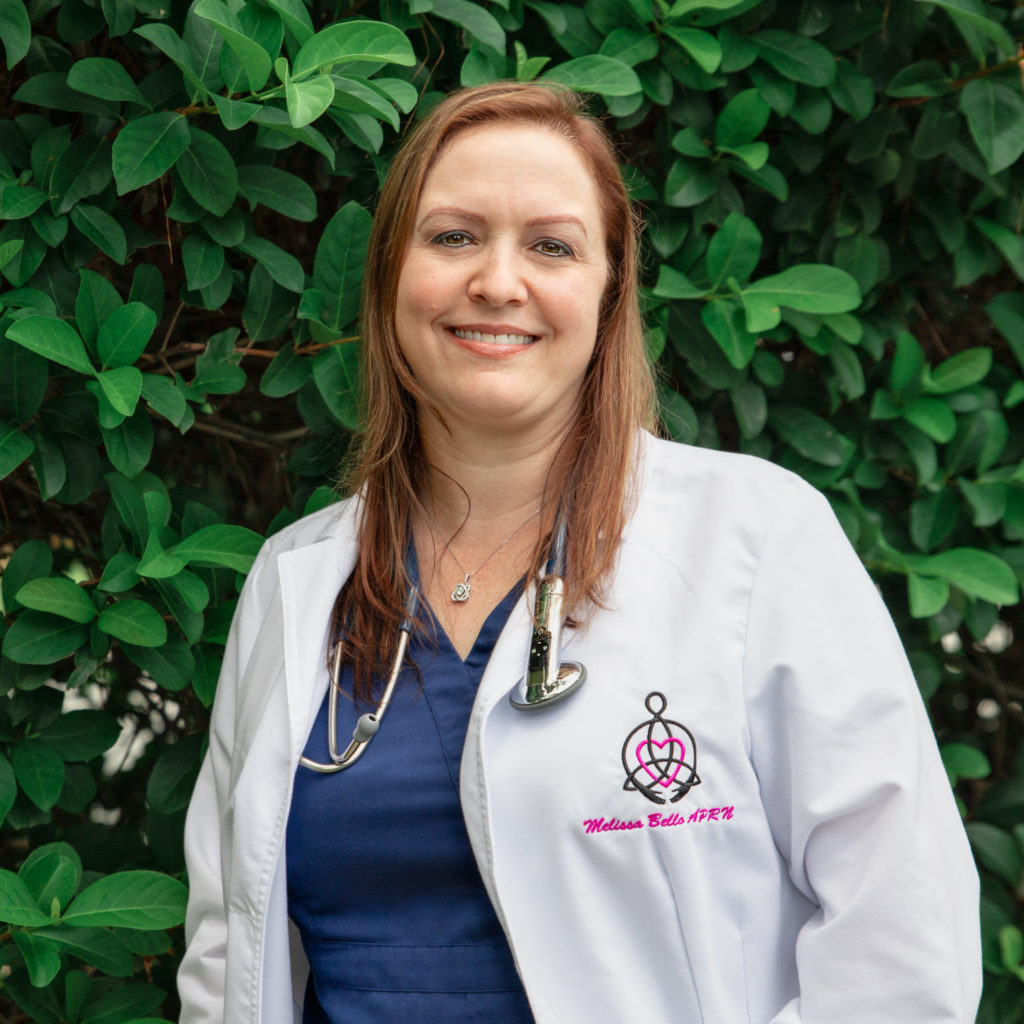
One of those providers who is volunteering her time is Melissa Bello, APRN, who works both in primary and critical care. Her new primary practice takes up three days of her week so she spends the other days doing cardiology critical care work in the ICU.
“I’ve known these providers for years, and it really bothers me to know they’re drowning like this,” Bello discloses.
When COVID spiked nationwide into the fall last year, the cases were mostly confined to elderly or immunocompromised individuals. With the arrival of the delta variant, however, patients have become younger and they are getting sicker than previous ones who would wind up in the ICU.
“Last year here in Ocala was nothing like New York and what they saw. Well now, it’s us. It’s happening. It’s in our hometown,” Bello shares. “My ICU has grown, it’s tripled in size over the last couple of months just trying to accommodate the influx of patients.”
Taylor says the majority of her patients currently being admitted to the hospital are unvaccinated. In fact, each of the providers commented that while vaccinated patients were being hospitalized in some cases, they were a smaller number of patients and their stays were much shorter and their symptoms were often less severe than those who were not vaccinated.
All stressed the importance of vaccines in mitigating any potential infection, as well as patients having open conversations with their providers about any questions or hesitations.
Bello shares what she sees during her ICU shifts with her primary care patients and says she doesn’t like that the vaccine and coronavirus, in general, have both become so political and that she tries to provide any information she can to her hesitant patients without getting into the politics of it. She says she has convinced a few of her patients to get vaccinated just by speaking with them and answering questions.
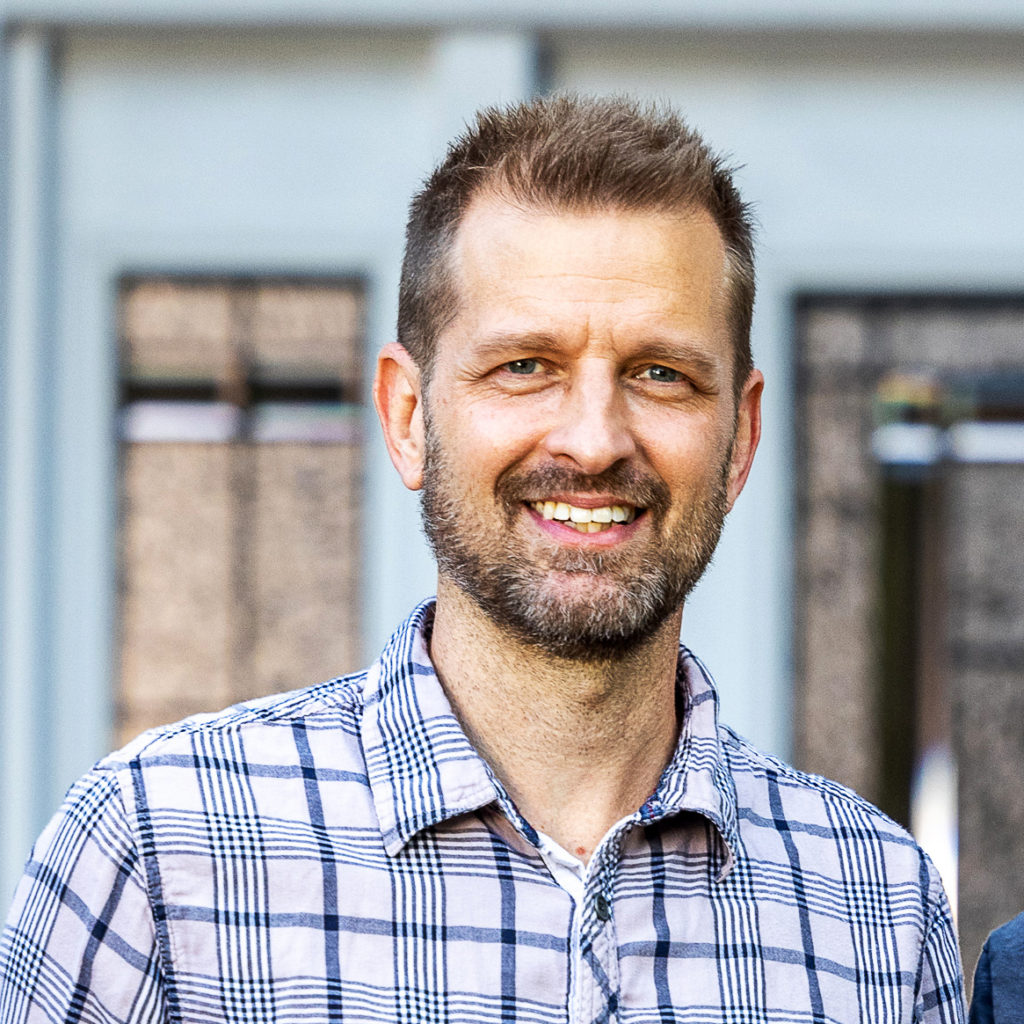
Dr. David Kuhn, an internal medicine specialist and native of Ocala is the CEO and founder of Trinity Clinic. He has been a leading force in the battle against COVID-19 in Marion County through his efforts to connect the community to good information and available resources. On the topic of vaccines, he explains that some benefits of receiving one are that it can mitigate the chances of getting seriously ill and cut down on the possibility of staying sick longer.
“If you have a vaccine, you’re much less likely to have a bad version of the illness,” Kuhn offers. “So you’re much less likely to have to deal with the long effects of COVID itself.”
He explains that the vaccine basically primes the immune system so when it encounters the virus, it’s ready.
“The immune response operates best when it’s operating based on its memory…so when the immune system is already primed, it can respond significantly quicker than it could if it has to learn as it goes,” he says.
Another benefit of the vaccine, offers Kuhn, is that as new variants of COVID emerge, it still offers some protection.
“Even though the vaccine was not invented for delta specifically,” he maintains, “the vaccines have held up very, very well against delta, which is great.”
Because there is so much mistrust in information from outside and online sources, Kuhn emphasizes the importance of talking to a health care provider who knows you and your medical history if you have any questions or hesitations about something like the vaccine.
“Go speak to your doctor about it,” he advises. “Go speak to your APRN, your specialist, your whoever, and get the best advice you can get from a person who knows your history and your story, medically speaking.”
In putting this story together, we had conversations with two sources who had been advised by their providers that they could potentially hold off on getting the vaccine, based on their age and good health. However, in both cases, the individuals said they were now seriously considering getting vaccinated based on concerns over keeping elderly or vulnerable relatives safe and also because they have begun to see new COVID-19 infections becoming more widespread in younger people.
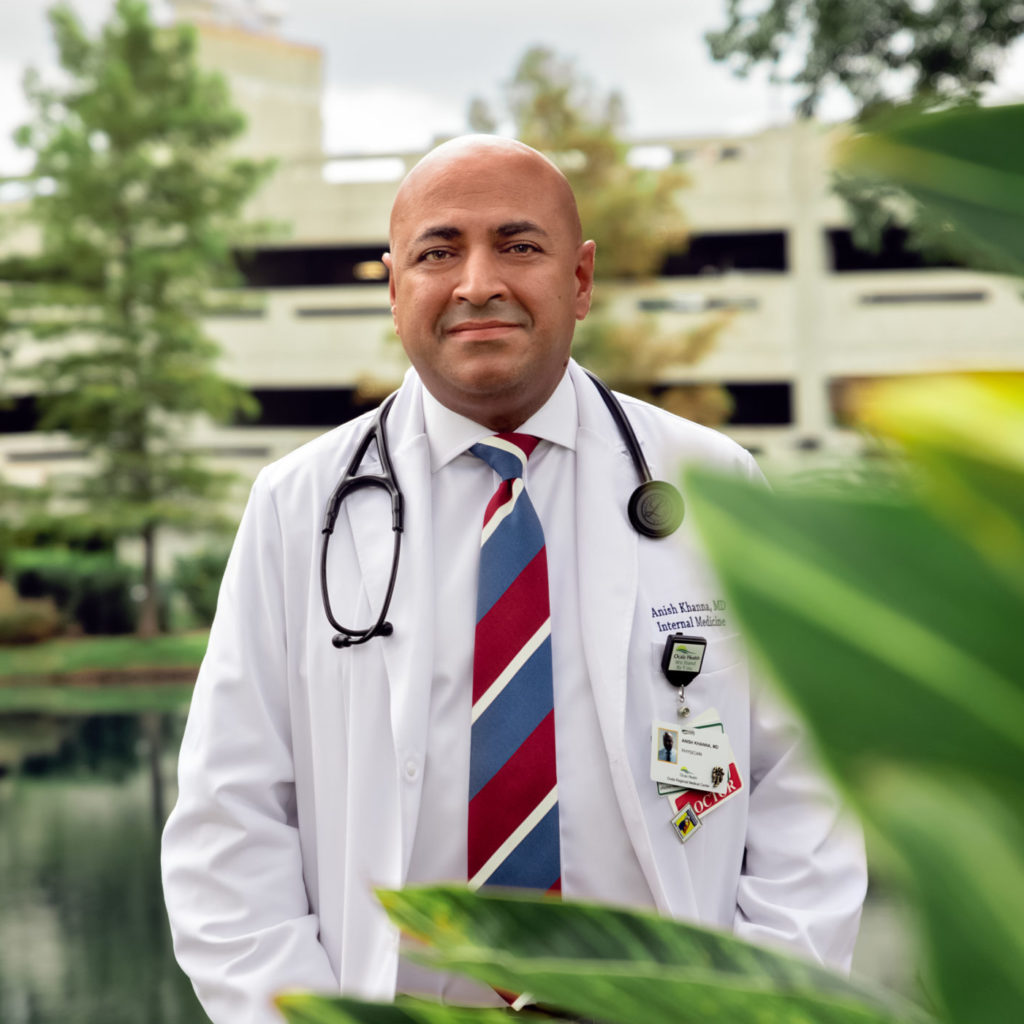
Dr. Anish Khanna, an internal medicine specialist in Ocala, explains that one of the most compelling reasons for a healthy person to be vaccinated is to protect others in the community by helping to build herd immunity. He says while he appreciates and provides treatments such as monoclonal antibodies to his patients, vaccines provide a much better solution for dealing with COVID-19.
Experience Matters
Can you still get COVID-19 if you’re vaccinated? Yes, Bello confirms, but she adds that you’re likely not going to end up in the hospital on a ventilator and that’s the difference. Bates herself tested positive for the virus recently, even though she’s been vaccinated. But, she says, the vaccine still did its job as she felt only mild symptoms for a couple of days.
“I’m very thankful that I had that vaccine,” she states.
She says she starts the discussion of vaccines as her ICU patients begin to recover and are preparing for discharge. She implores them to talk about being in the ICU for multiple weeks so their friends and family will have an idea as to what it’s like.
Khanna encourages his patients who experience COVID-19 firsthand to share their experiences on a personal level as well, which, he says, humanizes the virus for others around them. He says that, most of the time, patients who are being discharged bring up the topic of when they should get vaccinated or how they convinced others in their circle to get vaccinated.
Kuhn says that these sort of firsthand accounts, from those who have had COVID-19, are becoming more common and powerful as the delta variant infects more people locally and he believes they are helping the public better understand the realities of COVID.
“I think that it will take people in the public eye to kind of stand up and say, ‘Look, this is a good thing to do. It’s a good idea to get vaccinated,’” he declares.
Clocking Out but Staying On
While working in an ICU setting during a pandemic is full of difficult moments, some are harder than others, including detaching once a shift or multiple shifts are over.
“The hardest part of my job is having to walk out of the hospital doors and disconnect from it,” Taylor admits. “And you have to, for your own sanity.”
Bates finds it hard to fully disconnect, though, as her patients never really leave her thoughts.
“You hear their cries in your heart at night,” she reveals. “You take these patients home with you.”
Khanna also has felt it hard to disconnect, especially after following patients for weeks at a time. He explains that it is especially difficult when he makes a strong personal connection with the patient, which happens often.
One patient will stay with Bello forever. She says the patient, who is in his early 40s, was completely healthy before being admitted to the ICU with COVID-19. He was alone during the majority of his stay, isolated from friends and family, only able to connect with his young children through occasional video chats. One night, the patient signed himself up for hospice care. The next day, however, Bates convinced him to keep working with her instead. She treated him for another six weeks and he was eventually able to be weaned off of his breathing apparatus and was discharged from the hospital. Bates shares that seeing him two months later when he stopped by the ICU to thank everyone for their care was incredibly rewarding.
The Ties that Bind Us Together
Khanna feels proud to see how the health care community in Ocala is responding to the challenge. “The amount of investment on every health care provider’s part that I’ve seen here is outstanding,” he declares.
“I have to give credit to everybody who is working together as a team to try and help people because it is rough,” Bello maintains. “It’s not just the nurses, the respiratory therapists and doctors. It’s the housekeepers, the phlebotomists…it’s everyone.”
“Right now, we’re leaning very heavily on each other,” says Taylor. “It’s a very hard job right now and we’re very lucky to have each other and the camaraderie we have.”
“We all have to help each other, that’s the only way to get these patients better,” Bates adds.
“Our goal is really to get more people vaccinated before the next surge and more lives are lost,” Khanna offers. “If this effort saves even one life, it’s worth it.”
Their collective hope for the community they love, where they work and live, is that we can unite in our goal to do everything we can to protect ourselves and each other. We will all play a role in ending this pandemic—because now it is more than just health care workers on the front line. It’s all of us.
Editor’s Note: The comments and opinions expressed in this story are the views of the individuals quoted and not their respective employers.






